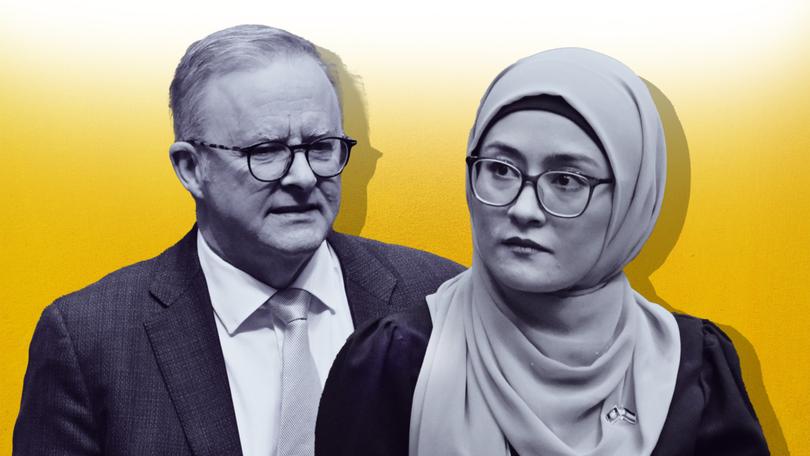EDITORIAL: Sectarianism of all kinds is a threat to cohesion
EDITORIAL: Faith-based political movements are nothing new in Australia. And wherever it has existed, sectarianism has posed a threat to our social cohesion.

Faith-based political movements are nothing new in Australia.
And wherever it has existed, sectarianism has posed a threat to our social cohesion.
Earlier in the life of the federation, the division was primarily between Catholics and Protestants — Labor benches were overwhelmingly Catholic and Liberals were Protestants.
Sign up to The Nightly's newsletters.
Get the first look at the digital newspaper, curated daily stories and breaking headlines delivered to your inbox.
By continuing you agree to our Terms and Privacy Policy.Australia’s demography has changed significantly since then. Far fewer Australians identify as being of any religion at all, and the proportion of us who identify as Christian has dropped off a cliff from 86 per cent in 1971 to just 44 per cent in 2021.
That’s seen the divide between Catholics and Protestants mercifully recede. In recent decades, most Australians looked askance at politicians who were too loud about their religion, the most notable example being the suspicion with which many regarded the Pentecostal beliefs of ex-prime minister Scott Morrison.
The expectation has been that while Australian politicians are more than welcome to believe in whatever deity they choose, we’d all prefer it if they kept those beliefs at home.
But the belief that religion is best left out of politics is not carried by all.
Senator Fatima Payman’s defection from Labor over what she said was the party’s indifference to the war between Israel and Palestine has illustrated that.
Then came news that two religiously-motivated funding vehicles, The Muslim Vote and Muslim Votes Matter, would target incumbent Labor MPs in seats with a high proportion of Muslim voters.
The plan is to advocate for Islamic interests, and along the way unseat high-profile Labor frontbenchers including Employment Minister Tony Burke in Watson, Education Minister Jason Clare in Blaxland and Climate Change Minister Chris Bowen in McMahon, all of whom hold western Sydney seats with large Muslim populations.
It has Labor rightly scared.
Votes are already drifting away from the major parties. In 2010, the Coalition and Labor received 81 per cent of the primary vote. By 2022, that had fallen away to 68 per cent.
Anthony Albanese said minority groups seeking to form their own faith-based political groups would serve only to further “isolate themselves” from the mainstream.
“I think it’s important that local members represent the entire community and certainly in my local electorate, I represent people of different faiths, different genders, different sexualities,” the Prime Minister said.
“We are a diverse community. I look around this group here, and I see that and that’s a good thing and that’s Australia’s strength. And it’s important we don’t take it for granted.”
Increasing Islamic sectarianism will serve only to encourage Islamophobia, undermine our multiculturalism and threaten our social cohesion.
In order to head off this challenge, our mainstream political parties need to become better at serving and representing the entire population.
Australian politicians’ first duty should always be to Australians. Not to nations overseas, and not a higher power.
